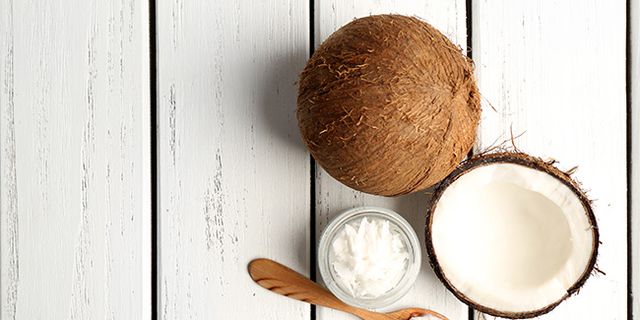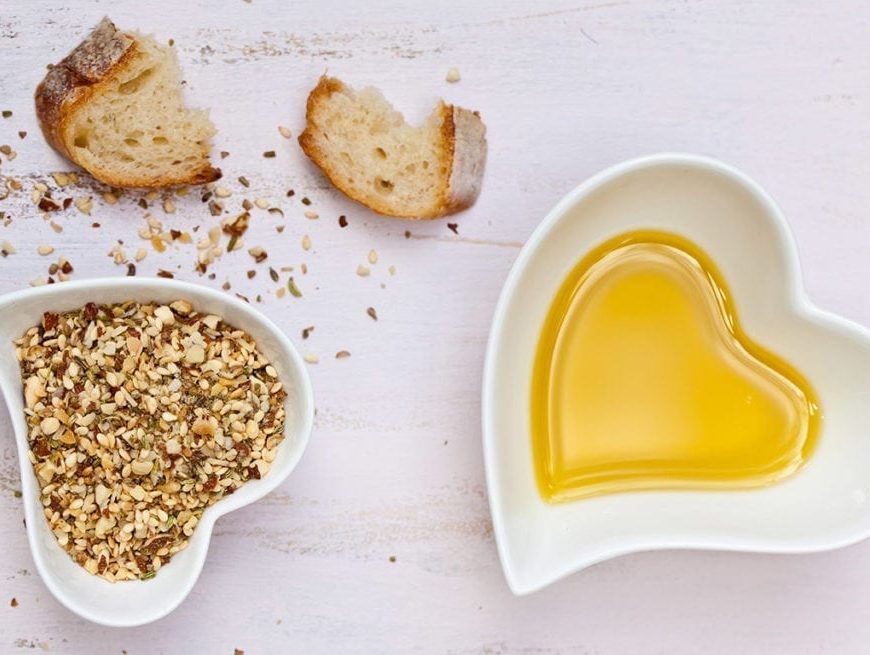Coconut is a superfood.
Coconut oil and palm oil have unique medium-chain fats (whereas other foods have long-chain fats). As you may have heard, palm oil should be avoided due to the livelihood of orangutans. Medium-chain fats are not stored as fat in the body, they are immediately used as energy which increases our metabolism. If you go nuts on coconuts, you can still gain fat from the other fats you are eating, but you cannot blame coconut for the fat you have stored.
Extra benefits include enhanced brain function and memory, increased energy, elevated HDL (good) cholesterol, and boosted immunity.
Use coconut oil, coconut cream, coconut milk (tin or carton) and desiccated/shredded coconut – not so much coconut water. Coconut is versatile, plus has a multitude of internal and external benefits.
From a nutrient perspective, you wouldn’t want to replace coconut for every other food in your diet, because you would become deficient in other nutrients by neglecting other important foods. Balance is key.
Coconut oil is a saturated fat, but that doesn’t matter when it is a plant source. Hydrogenated and trans fats (excluding the tiny amounts found naturally in animal foods) are the ones that we should be staying clear of.
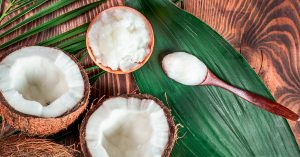
Coconut Oil
Unlike olive oil, coconut oil doesn’t need to be purchased in a dark bottle because it is not prone to oxidation – from light, heat or oxygen. Coconut oil is hardy because it is about 90% saturated fat, which is higher than butter (64%) and animal fat (40%). Yes, coconut oil has more saturated fat than butter and more than twice that of animal fat! There is nothing wrong with saturated fats in moderation, especially not coconut oil. Don’t confuse saturated fats with trans fats. The media has done a good job of unnecessarily scaring people away.
Virgin and Extra Virgin
When it comes to coconut oil, virgin and extra virgin are the same. Virgin coconut oil is cold pressed, not refined, bleached or deodorised. This is commonly called RBD on the label. If you didn’t know any better, you wouldn’t know that RBD means refined, bleached and deodorised. RBD coconut oil is made from the copra (dried coconut kernel). The advantage of this is the coconut oil has a neutral taste. Some people prefer not to have all of their food taste like coconut.
What Should I Buy and Cook With?
Both. The smoke point of virgin coconut oil is 177 degrees, in contrast to the high heat coconut oil being 232 degrees. Save the good, virgin stuff for smoothies, bliss balls, and raw treats. There is a big difference in smoke points. RBD coconut oil is preferred for cooking, more importantly for high heat cooking. If you are cooking under 177 degrees, virgin coconut oil is fine. Although not many of us cook with a thermometer so we wouldn’t know!
Include 1-4 tablespoons of coconut oil per day.
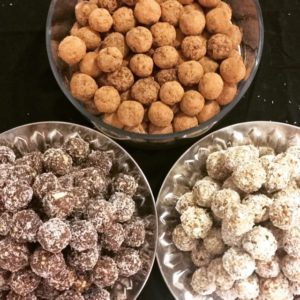
MCT Oil
Heard of MCT oil? You will have if you have tried the keto diet or got hooked on bulletproof coffee. MCT (medium chain triglycerides) oil is extracted from coconut. MCTs compromise about 65% of coconut oil. It has all the benefits of coconut oil, but it is twice as potent. MCT oil is tasteless and processed to some degree, however, it is more effective.
Start with a teaspoon and slowly work your way up to a tablespoon per day.
Bulletproof coffee is not for the faint-hearted. It is a high-calorie coffee used as a breakfast-replacement – consisting of coffee, grass-fed unsalted butter, and MCT oil mixed together in a blender. It is popular with advocates of keto and intermittent fasting. The fat content and MCTs allow you to remain in ketosis, while the caffeine boosts metabolism.
The Most Natural Body Moisturiser
Coconut oil is quite greasy so put it on before you put your pyjamas (not your nice clothes!) on. Despite being solid at room temperature, coconut oil melts quickly when it comes into contact with your warm body temperature.
Check out my blogs ~ Is Coconut Water all it’s Cracked Up to Be and Does Eating Fat Make You Fat?
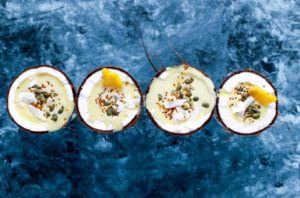
Your Nutrition Mentor,
Liv


